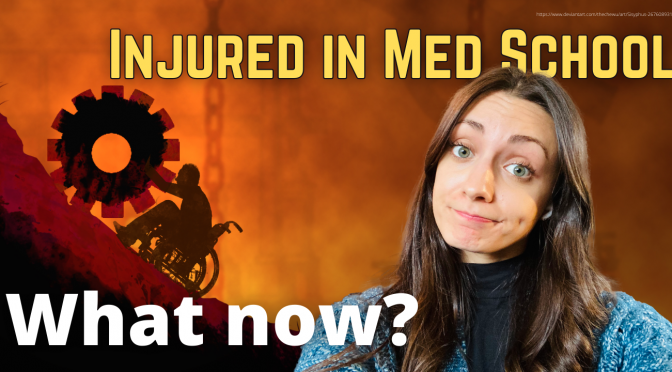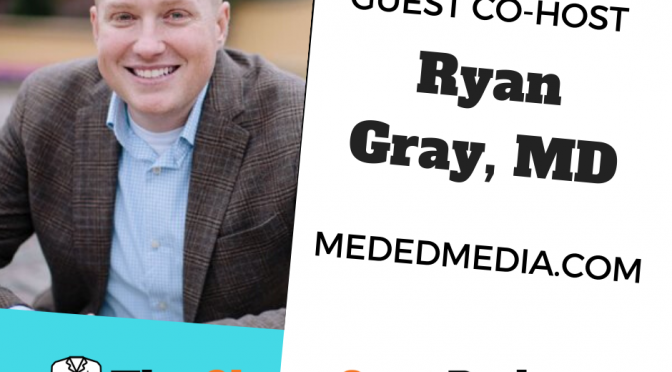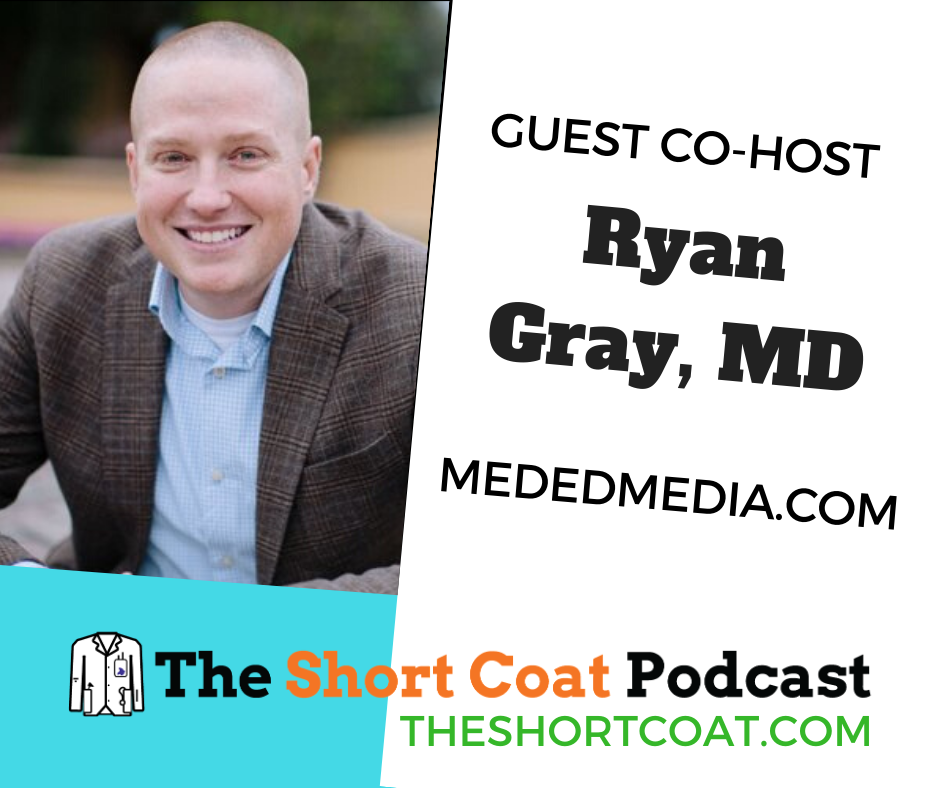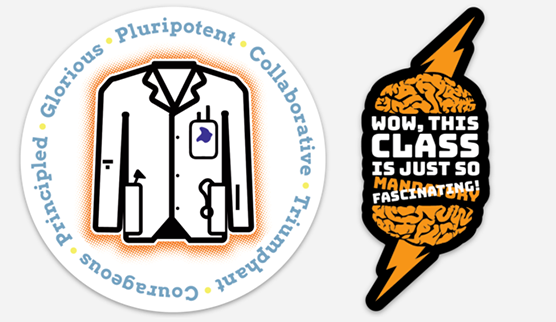Podcast: Play in new window | Download (Duration: 45:10 — 41.3MB)
Subscribe: Spotify | RSS | More
We live in a world that still believes the disabled are a danger to patient safety
TL;DR
- An injury during medical school or residency can temporarily or permanently alter one’s career prospects and trajectory.
- Even serious disabilities don’t have to be career-enders. But in many cases, it’s up to the injured to counter the ableism that still exists in medicine.
- What unionizing residents might accomplish, and why it might be needed even in today’s graduate medical education paradigm.
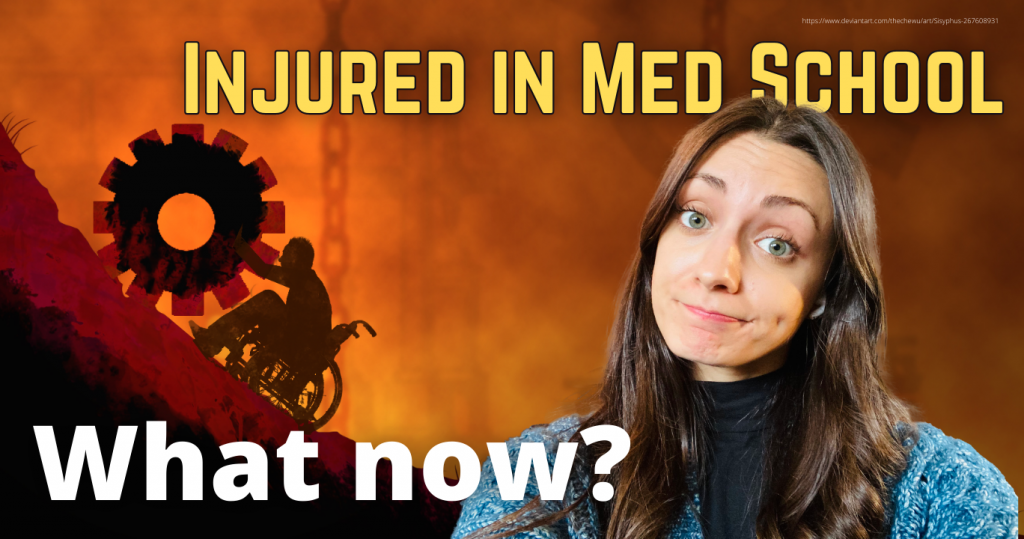
Bluebell (not her real name) called The Short Coat Listener Line as she is recovering from an injury; her injury isn’t serious, but it got her thinking–in what ways would an injury, temporary or permanent, alter a medical student’s career trajectory? M3s Brandon Bacalzo and Nathen Spitz, M2 Lola Lozano, and M1 Noah Wick discuss what has happened to people they know who’ve faced this situation, some ideas on protecting their livelihoods from the effects of a permanent disability, and how ableism may continue to exist in medicine and medical education.
The crew also offers some thoughts following Match Day 2022, Brandon’s newfound responsibilities as a father, and the possibilities of unionizing residents.
We Want to Hear From You
How’d we do on this week’s show? Did we miss anything in our conversation? Did we anger you? Did we make you smile? Call us at 347-SHORTCT anytime or email theshortcoats@gmail.com. It’s always a pleasure to hear from you!
We want to know more about you: Take the Listener Survey

